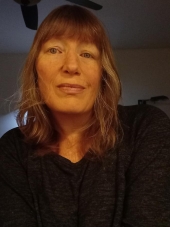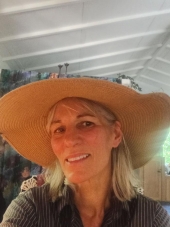
 2
2




Outdoor and Ecological articles (sporadic Mondays) at http://blog.dxlogan.com/ and my main site is found at http://www.dxlogan.com/
 2
2




I want to be 15 again …so I can ruin my life differently.

 5
5




D. Logan wrote:There are a few words we all use regularly, but that seem to have vastly different meanings between us.
Blog: 5 Acres & A Dream
Books: Kikobian Books | Permies Digital Market
 3
3




Invasive plants are Earth's way of insisting we notice her medicines. Stephen Herrod Buhner
Everyone learns what works by learning what doesn't work. Stephen Herrod Buhner
















Anne Miller wrote:
Permaculture: is according to the "Permaculture a Designer's Manual by Bill Mollison."
Blog: 5 Acres & A Dream
Books: Kikobian Books | Permies Digital Market
 1
1




These are a couple of quotes by Bill Mollison that I like: We’d had agriculture for 7,000 years, and we’d been losing for 7,000 years — everything was turning into desert. So I wondered, can we build systems that obey ecological principles? We know what they are, we just never apply them. Ecologists never apply good ecology to their gardens. Architects never understand the transmission of heat in buildings. And physicists live in houses with demented energy systems. It’s curious that we never apply what we know to how we actually live.
Make the least changes that you need to achieve what you want.
Don’t cut a tree down unless you have to
Ann Torrence said I know it's expensive. It's a massive textbook, hardcover, printed in Australia. I got my copy as a birthday gift (thanks mom!). A small reward for another decade. By planning to start a month from now, you can a) reserve it from the library, b) drop hints to loved ones about a tasteful gift, c) buy a copy to write copious notes in, d) rent a copy from Amazon, or e) buy a copy and plan to sell it back, since the going used price is 1¢ less than the new price. In fact, instead of whinging about how expensive it is, you could buy a copy, take good care of it, sell it to someone else on Permies.com for $5 less than the original price, they could read and resell for a similar reduction, and then 20 people could read it for $5 each plus shipping. A lot of shipping. But effectively renting a $100 book for $5 plus shipping isn't bad. That would be an interesting experiment in free market economics, but I digress.
Invasive plants are Earth's way of insisting we notice her medicines. Stephen Herrod Buhner
Everyone learns what works by learning what doesn't work. Stephen Herrod Buhner












 1
1




Blog: 5 Acres & A Dream
Books: Kikobian Books | Permies Digital Market

|
catch it before it slithers away! Oh wait, it's a tiny ad:
Learn Permaculture through a little hard work
https://wheaton-labs.com/bootcamp
|






